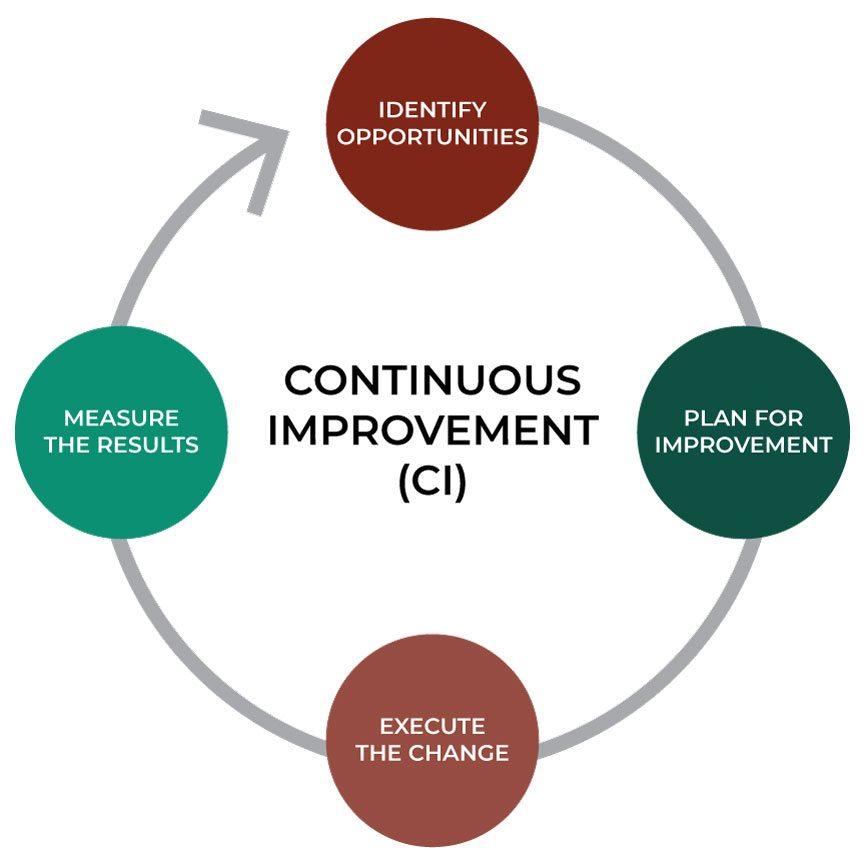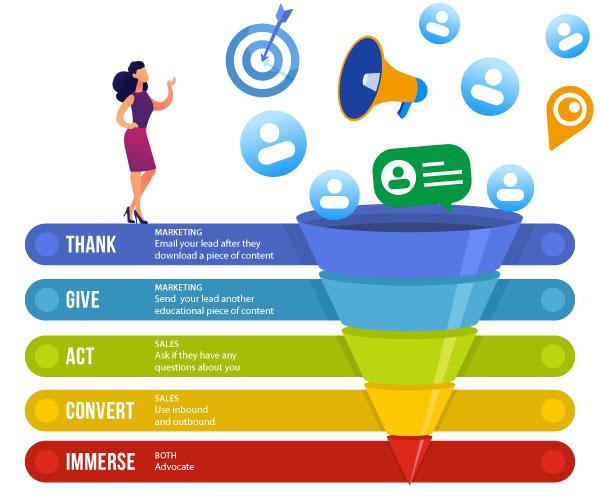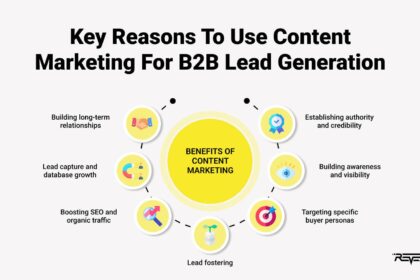In a world where consumer attention is fleeting and competition is fierce, the art of connecting with your target audience has transformed dramatically. Enter marketing automation: an essential tool that has revolutionized the way businesses engage, nurture, and convert potential customers. But amidst a myriad of platforms and countless strategies, how do you effectively harness the power of automation to unlock your business’s true potential? In this article, we will delve into the intricacies of crafting a successful marketing automation strategy. From understanding your audience to integrating cutting-edge technology, we’ll guide you through the essentials that will empower you to streamline your efforts, enhance customer experiences, and ultimately drive growth. Join us as we explore the blueprint for not just surviving, but thriving in today’s dynamic marketplace.
Understanding the Foundations of Marketing Automation
At the heart of every successful marketing automation strategy lies a robust understanding of its fundamental components. Marketing automation is not merely about deploying tools; rather, it requires grasping the interplay between technology and customer engagement. Key elements include customer segmentation, which allows businesses to tailor their messaging based on specific audience traits, and data analytics, the backbone of informed decision-making. By leveraging insights from analytics, organizations can refine their approaches, ensuring that they deliver content that resonates with their audience.
Furthermore, a solid automation framework should incorporate essential functionalities such as lead nurturing, which converts potential customers into loyal ones, and multi-channel marketing, enabling businesses to engage clients across various platforms. To illustrate the importance of these components, consider the following table that outlines their roles:
| Feature | Purpose | Benefit |
|---|---|---|
| Customer Segmentation | Identifies unique audience groups | Enables personalized messaging |
| Data Analytics | Tracks campaign performance | Informs strategy adjustments |
| Lead Nurturing | Engages prospects over time | Increases conversion rates |
| Multi-channel Marketing | Distributes content across platforms | Expands audience reach |

Identifying Key Metrics for Effective Campaign Management
To effectively manage your marketing campaigns, it’s essential to pinpoint the metrics that matter most to your objectives. Begin by establishing a clear connection between your goals and the metrics that can measure progress. Consider focusing on conversion rates to gauge the effectiveness of your calls to action, and monitor customer engagement through email open and click-through rates. Additional key performance indicators might include:
- Return on Investment (ROI) – Track the revenue generated versus the costs incurred.
- Customer Acquisition Cost (CAC) – Analyze the total cost of acquiring a customer.
- Lead Generation – Measure the number of new leads generated through each campaign.
- Retention Rates – Understand how well you’re keeping existing customers engaged.
Utilizing a comprehensive dashboard can make it easier to visualize these metrics in real-time. Creating a structured table can help summarize your key metrics effectively, allowing for quick insights and decision-making:
| Metric | Goal | Status |
|---|---|---|
| Conversion Rate | 10% | 8% |
| ROI | 300% | 250% |
| CAC | $50 | $75 |
| Customer Retention | 85% | 82% |
Analyzing these data points will allow you to refine your strategies on the go, ensuring your campaigns are flexible and capable of adapting to changing dynamics. Remember that the journey to effective campaign management is iterative—regularly revisiting and adjusting your chosen metrics will lead to sustained success over time.

Integrating Personalization to Enhance Customer Engagement
Incorporating personalization into your marketing strategy is like adding a dynamic layer to your customer interactions, transforming generic communications into tailored experiences. By leveraging data analytics, businesses can glean insights into customer behavior and preferences, enabling them to serve personalized content that resonates on a deeper level. This can include sending targeted emails, recommending products based on past purchases, or even displaying personalized web content. Key aspects to consider for effective personalization include:
- Data Collection: Gather data from various touchpoints to create comprehensive customer profiles.
- Segmentation: Divide your audience into meaningful segments to tailor messages accordingly.
- Behavior Tracking: Analyze user behavior to predict future actions and preferences.
- A/B Testing: Experiment with different versions of content to determine what resonates best.
Furthermore, the integration of personalization enhances customer engagement by fostering a sense of connection and loyalty. When customers feel understood and valued, they are more likely to interact with your brand and make repeat purchases. To solidify this engagement strategy, consider implementing a feedback loop that continuously refines your personalization efforts. Here’s a simple table to illustrate key performance indicators (KPIs) to track your personalization endeavors:
| Metric | Importance |
|---|---|
| Engagement Rate | Measures how actively customers interact with personalized content. |
| Conversion Rate | Tracks the percentage of users who complete a desired action, like making a purchase. |
| Customer Lifetime Value (CLV) | Estimates the total revenue a customer is expected to generate over their lifetime. |

Evaluating and Adjusting Your Strategy for Continuous Improvement
To ensure the effectiveness of your marketing automation strategy, it’s essential to conduct regular evaluations. Start by identifying key performance indicators (KPIs) that align with your business goals and assessing them periodically. This allows you to measure the success of your campaigns in real-time. Consider focusing on metrics such as:
- Email open rates
- Click-through rates
- Conversion rates
- Customer retention rates
Once you’ve gathered data, analyze the insights to comprehend what’s working and what isn’t. Look for trends that highlight areas for improvement and remain adaptive. For example, if a particular campaign yields low engagement, reassess your content approach or audience targeting. Utilize A/B testing to experiment with different strategies and ascertain the most effective path forward. Remember, marketing automation is not a set-it-and-forget-it endeavor; it thrives on ongoing adjustment and refinement.
| Strategy Component | Success Indicators | Adjustments |
|---|---|---|
| Email Campaigns | Increased Engagement | Revise subject lines and segments |
| Social Media Ads | Higher Click Rates | Test different visuals or calls to action |
| Landing Pages | Improved Conversion | Optimize layout and content messaging |
In Retrospect
As we reach the conclusion of our exploration into the world of marketing automation, it’s clear that crafting a successful strategy is not merely a checkbox on the to-do list, but a dynamic journey that requires thoughtful planning, ongoing refinement, and an openness to innovation. By embracing the principles outlined in this article, you’re not just unlocking the potential of technology; you’re also empowering your brand to forge deeper connections with your audience, streamline operations, and ultimately drive growth.
Remember, success in marketing automation lies in understanding both the art and science of your strategy. As you embark on this transformative endeavor, keep your goals in sight, ensure your tactics align with your vision, and don’t shy away from adapting as the landscape evolves. After all, the tools at your disposal are just that—tools. It is your creativity, insight, and commitment that will truly unlock the doors to success.
So, take a breath, gather your insights, and prepare to step confidently into a future where your marketing automation strategy not only meets the demands of today but also anticipates the possibilities of tomorrow. The path is yours to navigate—may it lead you to unprecedented achievements.



